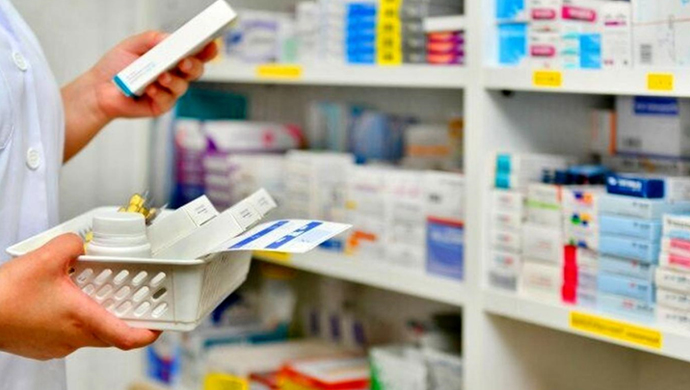The pharmaceutical industry in Iran is undergoing an unprecedented crisis. The industry is on the verge of bankruptcy and for some time now, even state media has been warning about the dire situation of production and smuggling in the import and export of medicine. These details debunk the talking points parroted by the Iranian regime’s network of apologists and lobbyists in the West, and place the blames for Iran’s medicine crisis on the regime and the regime alone.
Patients with special illnesses have come to bear the painful burden of inadequate medicine supply before anyone else in Iran. Now, with inflation and poverty running rampant, the vast majority of Iran’s society is reaching a point where they cannot pay for treatment if they have a serious illness!
“Every time we cover news of scientific achievements to the Iranian hemophilia community, the question among these patients is that when exactly will this treatment be finally available to them,” said Ahmad Ghavidel, former director of the Hemophilia Center, in an interview with the semi-official Fars News Agency on June 4. “For example, a medication by the name of Hemlibra, which can be injected once a month, has been available in the global pharmaceutical market for many years. However, it has never been included in the country’s drug list!” Ghavidel explained.
What is this drug list and who prepares it?
This question must be posed to the drug and treatment mafia in Iran. During the Covid-19 outbreak, Iranian regime Supreme Leader Ali Khamenei banned the import of approved vaccines manufactured in the U.S. and UK, in order to profit from his regime’s “domestic production!”
Production monopoly
Ghavidel acknowledged the consequences of Iran’s domestic production monopoly. This, of course, allows the government to fleece incurable patients to the fullest extent possible.
Ghavidel compared the regime’s pharmaceutical industry to the automobile industry, where graft and monopoly allow senior regime officials and their inner circles to rob Iran’s general population, increasing the suffering and death of the Iranian people. “The country’s thalassemia community has been suffering for years from this unreasonable support for domestic production, and their protests have dragged into the streets,” he lamented.
Smuggling imported medicine
A parallel phenomenon in Iran is the increasing practice of smuggling regularly imported medicine. During the Covid-19 outbreak, globally approved vaccines were widely available in Iran’s black market and the regime was fully involved in the entire process.
Even during Iran’s major earthquakes and floods of the past few years, tents and other equipment donated by other countries found their way to the black market instead of reaching the needy.
Selling smuggled medicine
In more recent cases, the state-run Jahan-e-Sanat newspaper published a report on June 20 titled the “Stone Age-style anesthesia,” revealing the anesthesia medicine shortage crisis. Despite the scarcity of these drugs in public hospitals, all high-quality drugs were available on the black market at several times the price. “Unfortunately, all the medicine in the public sector enters the black market through people with connections,” said Kourosh Shamimi, Chairman of the Board of Directors of the Tehran Private Hospitals Association, in an interview with Jahan-e- Sanat on June 20.
Exporting smuggled medicine
Government-linked thieves and looters in Iran no longer consider any limits or boundaries on their smuggling and looting. People remember all too well that in his official speech, former regime president Mahmoud Ahmadinejad spoke of various smuggling docks associated with the Islamic Revolutionary Guards Corps (IRGC), and for years now, news of smuggled medicine being exported out of Iran has been circulating in the media.
Iran’s medicine smuggling network is so rampant and out of control that the amount of smuggled medicine has exceeded even the country’s official exports, according to a September 21, 2020 report by the Fars news agency. The regime’s official IRIB news agency also acknowledged the continuation of this massive smuggling practice in a report wired on March 29 (of what year?).
Prior to that, Ali Mehramizi, a member of the board of directors of the Iranian Syndicate of Human Medicines, said at a news conference that Iranian medicine was being smuggled to Africa at one-third the price. Ten to 20 percent of the country’s medicine is smuggled, he added, according to a March 13 report wired by the semi-official Mehr news agency.
Jahan-e-Sanat daily published a piece on June 18 entitled, “The pharmaceutical industry on borrowed time,” examining the economic “masterpieces” of regime president Ebrahim Raisi and the effects of rising inflation and rising costs of medicine production on Iran’s pharmaceutical industry.
And an April 25 report wired by Mehr raised concerns about the “danger of the pharmaceutical industry going bankrupt.”
Faramarz Ekhteraee, chairman of the board of directors of the Syndicate of Human Medicine Industry Owners, in a press conference on March 13, warned of medicine production lines shutting down, comparing its fate with that of Iran’s now extinct textile industry.
Interestingly, he asked pharmacy students for help. While many young Iranians find migration as their only way out of these circumstances, Ekhteraee blames pharmacy students for fighting against grant-seeking, corruption, and the government mafia.
“You are the engine of development and the starting point and savior of this country. Stop the grant and the mafia, and fight the illiterates who, through influence, commercialize the healthy flow of our industry so that they and their children could profit from it,” he continued.
This is further proof that the mullahs’ regime ruling Iran has left no aspect of this country free from corruption, grant, mafia control, and plundering. The regime’s own state media debunk the claims heard periodically from Tehran’s known crowd of apologists and lobbyists in the West and mainstream media. Iran’s medicine crisis is a making of the mullahs’ regime alone.





